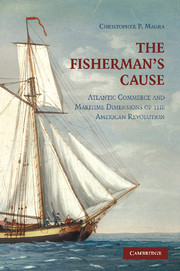Introduction
Published online by Cambridge University Press: 03 July 2009
Summary
The history of Sea Power is largely, though by no means solely, a narrative of contests between nations, of mutual rivalries, of violence frequently culminating in war. The profound influence of sea commerce upon the wealth and strength of countries was clearly seen long before the true principles which governed its growth and prosperity were detected. To secure to one's own people a disproportionate share of such benefits, every effort was made to exclude others, either by the peaceful legislative methods of monopoly or prohibitory regulations, or, when these failed, by direct violence. The clash of interests, the angry feelings roused by conflicting attempts thus to appropriate the larger share, if not the whole, of the advantages of commerce, and of distant unsettled commercial regions, led to wars.
After a long transatlantic journey, which included a sailing time of approximately eight weeks, the brig Pitt Packet was homeward bound on April 22, 1769. A rising April sun would have melted fog and warmed chilled hands in the early spring morning as the brig's crew made preparations to enter the harbor at Marblehead, Massachusetts. Thomas Power, the Pitt Packet's master, probably shouted orders for tack and sheet lines to be hauled in and secured as the brig angled toward the harbor mouth. A chorus of barefoot seamen would then sing pulling songs, or sea chanties, in order to lend a cadence to barehanded tacking labors.
- Type
- Chapter
- Information
- The Fisherman's CauseAtlantic Commerce and Maritime Dimensions of the American Revolution, pp. 1 - 16Publisher: Cambridge University PressPrint publication year: 2009



